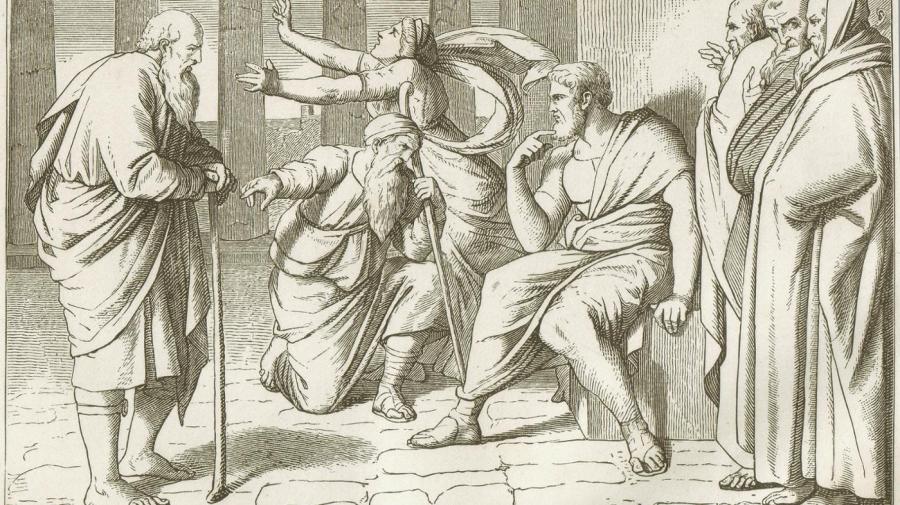What Is Oedipus the King’s Hamartia?

In Sophocles’ play, “Oedipus Rex,” Oedipus’ hamartia, or tragic flaw, is his arrogance. This arrogance leads him to search for a truth that ultimately destroys his life.
Aristotle is responsible for many terms and ideas associated with classical drama. According to his theory, all heroes possess some type of tragic flaw which illuminates their humanity to the audience. With Oedipus, the audience sees a great man going from being a king and serving the people of Thebes to a selfish man attempting to fulfill his own needs. This tragedy is compounded by the fact that Oedipus is warned by many to avoid the path he is convinced he should take. His arrogance drives him to ignore everyone and pursue his own desire.
According to the University of Pennsylvania, a tragic flaw is something central to the hero’s virtue, which somehow takes a turn for the worse. In Oedipus’ case, things go bad when he chooses to follow his desire rather than listen to those closest to him. He does not consider the consequences of his actions and does not care. At a time when he should be helping the people of Thebes, he is distracted by this search for the truth that only leads to his ruin. Because Oedipus realizes his tragic flaw, albeit too late, the audience feels sympathy for him and his plight.





